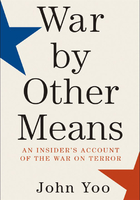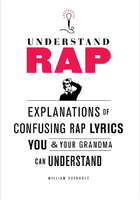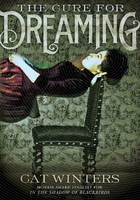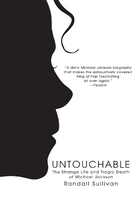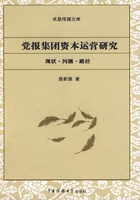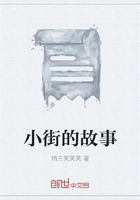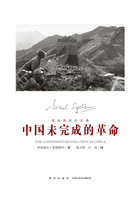Winston Churchill was born in 1874, half way through the Victorian Era. That November, his mother, Lady Randolph Churchill, then less than seven months pregnant, had slipped and fallen while walking with a shooting party at Blenheim Palace. A few days later, while riding in a pony carriage over rough ground, labour began. She was rushed back to the Palace, where, in the early hours of November 30, her son was born.
The magnificent palace at Blenheim was the home of the baby's grandfather, the 7th Duke of Marlborough. On his father's side he was a child of the British aristocracy, descended both from the 1st Earl Spencer and from the distinguished soldier John Churchill, 1st Duke of Marlborough, commander of the coalition of armies that had defeated France at the beginning of the eighteenth century. On his mother's side he had an entirely American lineage; her father, Leonard Jerome, then living in New York, was a successful stockbroker, financier and newspaper proprietor. A century earlier his ancestors had fought in Washington's armies for the independence of the American Colonies.
Almost a year before Churchill's birth, his father, Lord Randolph Churchill, had been elected to the House of Commons as Member of Parliament for Woodstock. This small borough, of which Blenheim was a part, had scarcely more than a thousand electors; it had long been accustomed to send members of the Ducal family, or their nominees, to Westminster. In January 1877 Churchill's grandfather, the 7th Duke of Marlborough, was appointed Viceroy of Ireland, with Lord Randolph as his private secretary. The two-year-old boy travelled with his parents to Dublin, together with his nanny, Mrs Everest.
When Churchill was four, Ireland suffered a severe potato famine, and an upsurge of nationalist ferment led by the Fenians. 'My nurse, Mrs Everest, was nervous about the Fenians,' he later wrote. 'I gathered these were wicked people and there was no end to what they would do if they had their way.' One day, when Churchill was out riding on his donkey, Mrs Everest thought that she saw a Fenian procession approaching. 'I am sure now,' he later reflected, 'that it must have been the Rifle Brigade out for a route march. But we were all very much alarmed, particularly the donkey, who expressed his anxiety by kicking. I was thrown off and had concussion of the brain. This was my first introduction to Irish politics!'
As well as his nanny, the young boy acquired a governess while in Dublin. Her task was to teach him reading and mathematics. 'These complications,' he later wrote, 'cast a steadily gathering shadow over my daily life. They took one away from all the interesting things one wanted to do in the nursery or the garden.' He also recalled that although his mother took 'no part in these impositions', she had given him to understand that she approved of them, and 'sided with the governess almost always'.
Fifty years later Churchill wrote of his mother: 'She shone for me like the Evening Star. I loved her dearly-but at a distance.' It was with his nanny that he found the affection which his parents did not provide. 'My nurse was my confidante,' he later wrote. 'Mrs Everest it was who looked after me and tended all my wants. It was to her I poured out my many troubles.'
In February 1880 Churchill's brother Jack was born. 'I remember my father coming into my bedroom at Vice-Regal Lodge in Dublin & telling me (aged 5) "You have a little brother",' he recalled sixty-five years later. Shortly after Jack's birth the family returned to London, to 29 St James's Place. There, Churchill was aware of the final illness of Disraeli, the former Conservative Prime Minister. 'I was always sure Lord Beaconsfield was going to die,' he later wrote, 'and at last the day came when all the people I saw went about with very sad faces because, as they said, a great and splendid Statesman who loved our country and defied the Russians, had died of a broken heart because of the ingratitude with which he had been treated by the Radicals.' Benjamin Disraeli, 1st Earl of Beaconsfield, died when Churchill was six years old.
At Christmas 1881, just after his seventh birthday, Churchill was at Blenheim. It was from there that his first surviving letter was written, posted on 4 January 1882. 'My dear Mamma,' he wrote, 'I hope you are quite well. I thank you very very much for the beautiful presents those Soldiers and Flags and Castle they are so nice it was so kind of you and dear Papa I send you my love and a great many kisses Your loving Winston.' That spring Churchill returned to Blenheim for two months. 'It is so nice being in the country,' he wrote to his mother that April. 'The gardens and the park are so much nicer to walk in than the Green Park or Hyde Park.' But he missed his parents, and when his grandmother went to London, he wrote to his father, 'I wish I was with her that I might give you a kiss.'
It was Mrs Everest who looked after the two brothers at Blenheim. 'When we were out on Friday near the cascade,' Churchill wrote to his mother shortly before Easter, 'we saw a snake crawling about in the grass. I wanted to kill it but Everest would not let me.' That Easter Mrs Everest took the two boys to the Isle of Wight, where her brother-in-law was a senior warder at Parkhurst prison. They stayed at his cottage at Ventnor, overlooking the sea. From Ventnor, Churchill wrote to his mother, 'We had a Picnic we went to Sandown took our dinner on the Beach and we went to see the Forts & Guns at Sandown there were some enormous 18 ton Guns.'
That autumn Churchill was told that he was to be sent to boarding school. 'I was,' he later wrote, 'what grown-up people in their off-hand way called "a troublesome boy". It appeared that I was to go away from home for many weeks at a stretch in order to do lessons under masters.' He was not 'troublesome' to everyone, however; Lady Randolph's sister Leonie found him 'full of fun and quite unselfconscious' when he stayed with her.
The boarding school was St George's, near Ascot. Churchill was sent there four weeks before his eighth birthday. Term was already half over; his mother took him there that first afternoon. The two of them had tea with the headmaster. 'I was preoccupied', he recalled nearly fifty years later, 'with the fear of spilling my cup and so making "a bad start". I was also miserable at the idea of being left alone among all these strangers in this great, fierce, formidable place.'
Unhappiness at school began from the first days. 'After all,' Churchill later wrote, 'I was only seven, and I had been so happy with all my toys. I had such wonderful toys: a real steam engine, a magic lantern, and a collection of soldiers already nearly a thousand strong. Now it was to be all lessons.' Severity, and at times brutality, were part of life at St George's. 'Flogging with the birch in accordance with the Eton fashion,' Churchill later wrote, 'was a great feature of the curriculum. But I am sure no Eton boy, and certainly no Harrow boy of my day,'-Churchill was at Harrow from 1888 to 1892-'ever received such a cruel flogging as this Headmaster was accustomed to inflict upon the little boys who were in his care and power. They exceeded in severity anything that would be tolerated in any of the Reformatories under the Home Office.'
Among the boys who witnessed these floggings was Roger Fry. 'The swishing was given with the master's full strength,' he later wrote, 'and it took only two or three strokes for drops of blood to form everywhere and it continued for 15 or 20 strokes when the wretched boy's bottom was a mass of blood.' Churchill himself was later to recall how during the floggings the rest of the boys 'sat quaking, listening to their screams'.
'How I hated this school,' he later wrote, 'and what a life of anxiety I lived for more than two years. I made very little progress at my lessons, and none at all at games. I counted the days and the hours to the end of every term, when I should return home from this hateful servitude and range my soldiers in line of battle on the nursery floor.'
Churchill's first holiday from St George's, after a month and a half at school, was at Christmas 1882. Home was now another house in London, 2 Connaught Place, on the north side of Hyde Park, where his parents were to live for the next ten years. 'As to Winston's improvement,' his mother wrote to his father on December 26, 'I am sorry to say I see none. Perhaps there has not been time enough. He can read very well, but that is all, and the first two days he came home he was terribly slangy and loud. Altogether I am disappointed. But Everest was told down there that next term they mean to be more strict with him.' Lady Randolph also told her husband that their elder son 'teases the baby more than ever'; to remedy this 'I shall take him in hand'. She ended her reference to her eight-year-old son, 'It appears that he is afraid of me.'
Churchill's first school report was a poor one. His place in the form of eleven boys was eleventh. Under Grammar it read, 'He has made a start,' and under Diligence, 'He will do well, but must treat his work in general, more seriously next term.' The report ended with a note by the Headmaster, 'Very truthful, but a regular "pickle" in many ways at present-has not fallen into school ways yet but this could hardly be expected.'
Anxiety at school went hand in hand with ill-health, which was another cause of concern to his parents. 'I'm sorry poor little Winston has not been well,' Lord Randolph wrote to his wife from the South of France on New Year's Day 1883, 'but I don't make out what is the matter with him. It seems we are a sickly family & cannot get rid of the doctors.' Four days later he wrote again: 'I am so glad to hear Winny is right again. Give him a kiss from me.' To cure whatever was wrong with the boy, the doctor advised a week by the sea, at Herne Bay.
Back at St George's, Churchill repeatedly and unsuccessfully asked his mother to visit him. Before term ended there was sports day. 'Please do let Everest and Jack come down to see the athletics,' he wrote, 'and come down your self dear. I shall expect to see you and Jack & Everest.' Lady Randolph did not take up her son's invitation, but there was a consolation. 'My dear Mamma,' he wrote to her when the sports day was over, 'It was so kind of you to let Everest come down here. I think she enjoyed her-self very much,' and he added, 'Only 18 more days.'
In Churchill's report that term there was praise for his History, Geography, Translation and General Conduct. The rest of the report was less complimentary: Composition was 'very feeble', Writing 'good-but so terribly slow', Spelling 'about as bad as it well can be'. Under Diligence was written; 'Does not quite understand the meaning of hard work-must make up his mind to do so next term.' His place in the Division of nine boys was ninth; his place in the Set of thirteen was thirteenth.
That summer, while Churchill was at school, his grandfather, the 7th Duke of Marlborough, died. In deep mourning, Lord Randolph sought solace in travel. As Churchill himself was later to write, in his biography of his father, 'Lord Randolph hurried away with his wife and son to Gastein.' This visit, to one of the most fashionable spas of the Austro-Hungarian Empire, was Churchill's first visit to Europe. On the way there, father and son passed through Paris. 'We drove along together through the Place de la Concorde,' he told the citizens of Metz sixty-three years later. 'Being an observant child I noticed that one of the monuments was covered with wreaths and crêpe and I at once asked him why. He replied, "These are monuments of the Provinces of France. Two of them, Alsace and Lorraine, have been taken from France by the Germans in the last war. The French are very unhappy about it and hope some day to get them back." I remember quite distinctly thinking to myself, "I hope they will get them back".'
After he returned to St George's, the quality of Churchill's work was in contrast with his conduct. 'Began term well,' his report read, 'but latterly has been very naughty!-on the whole he has made progress.' According to the next term's report, History and Geography were 'sometimes exceedingly good'. The headmaster commented, 'He is, I hope, beginning to realize that school means work and discipline,' and he added, 'He is rather greedy at meals.'
***
In February 1884 Lord Randolph announced his intention of standing for Parliament for Birmingham, as Woodstock was among the hundreds of family boroughs about to be abolished. By going to an overwhelmingly radical area, he was intent on showing that 'Tory Democracy' was more than a slogan. In March the headmaster's wife visited the Midlands. 'And she heard,' Churchill wrote to his mother, 'that they were betting two to one that Papa would get in for Birmingham.' This was the first of Churchill's letters in which politics appears. The rest of the letter was about a school outing: 'We all went to a sand pit the other day and played a very exciting game. As the sides are about 24 feet high, and a great struggle, those who got out first kept a fierce struggle with the rest.'
Churchill's next school report showed that, while he was certainly clever, he was also extremely unhappy. History and Geography were both 'very good, especially History'. But Conduct was described as 'exceedingly bad. He is not to be trusted to do any one thing', and his lateness for morning school, twenty times in the forty-day term, was described as 'very disgraceful'. The pages of the report-card reveal Churchill's torment, 'Is a constant trouble to everybody and is always in some scrape or other,' and, 'He cannot be trusted to behave himself anywhere.' But even the headmaster of St George's could not fail to notice that the nine-year-old boy had 'very good abilities'.
The following term Churchill's letters to his mother show how lonely he felt in that predominantly hostile world. 'It is very unkind of you,' he wrote early in June, 'not to write to me before this, I have only had one letter from you this term.' That summer term his school work was again praised; Grammar, Music and French were all 'good', History and Geography were 'very good'. His General Conduct was described as 'better-but still troublesome'. The headmaster commented, 'He has no ambition-if he were really to exert himself he might yet be first at the end of Term.'
When Churchill was nine and a half, his father gave him Robert Louis Stevenson's Treasure Island. 'I remember the delight with which I devoured it,' he later wrote. 'My teachers saw me at once backward and precocious, reading books beyond my years and yet at the bottom of the form. They were offended. They had large resources of compulsion at their disposal, but I was stubborn.' His school report that summer also gave evidence of continual problems with regard to discipline, commenting under Diligence: 'Fair on the whole. Occasionally gives a great deal of trouble.'
What that trouble was, the report did not say, but another St George's boy, Maurice Baring, who arrived at the school shortly after Churchill left, wrote in his memoirs that Churchill had been flogged 'for taking sugar from the pantry, and so far from being penitent, he had taken the Headmaster's sacred straw hat from where it hung over the door and kicked it to pieces'. This defiance had already become a legend.
That autumn Churchill suffered from yet another bout of ill-health. The Churchill family doctor, Robson Roose, who practised both in London and in Brighton, suggested that his health would improve if he went to a school by the sea; he suggested the school in Brighton at which his own son was a pupil. Roose offered to keep a watching eye on the boy. 'As I was now supposed to be very delicate,' Churchill later recalled, 'it was thought desirable that I should be under his constant care.' The new boarding school was run by the two Thomson sisters at 29 and 39 Brunswick Road, Brighton. Term began in September 1884. 'I am very happy here,' he wrote to his mother at the end of October. Two days later he wrote again, 'I have been very extravagant, I have bought a lovely stamp-book and stamps, will you please send a little more money.'
On November 30 Churchill celebrated his tenth birthday. Three days later his father left England for India, where he stayed until March 1885, absorbing himself in the problems of the sub-continent; he expected to be made Secretary of State for India if the Conservatives returned to power. His family saw him off. 'I should like to be with you on that beautiful ship,' Churchill wrote after his return to school. 'We went and had some hotel soup after you went, so we did not do amiss. We saw your big ship steaming out of harbour as we were in the train.'
That winter Lady Randolph's sister Clara wrote to the boy's American grandmother, 'Winston has grown to be such a nice, charming boy.' From his new school, however, his mother was sent in mid-December an alarming letter written by one of the Thomson sisters, Charlotte. She had just been called to see Churchill who, she wrote, 'was in a trouble that might have proved very serious'. Charlotte Thomson went on to explain: 'He was at work in a drawing examination, and some dispute seems to have arisen between him and the boy sitting next to him about a knife the tutor had lent them for their work. The whole affair passed in a moment, but Winston received a blow inflicting a slight wound in the chest.'
Dr Roose was able to assure Miss Thomson that the boy 'is not much hurt, but that he might have been'. This was not the first time, Miss Thomson added, that complaint had been made of the other boy, who had a passionate temper. His parents would be asked to take him away from the school. Writing about the stabbing to her husband, Lady Randolph commented rather unsympathetically, 'I have no doubt Winston teased the boy dreadfully-& it ought to be a lesson to him.' Churchill returned to London for a few days with Dr Roose. It was then that Lady Randolph learned that the penknife with which her son had been stabbed 'went in about a quarter of an inch', but, she added in her letter to Lord Randolph, 'of course, as I thought, he began by pulling the other boy's ear'.
'What adventures Winston does have,' Lord Randolph wrote to his wife from Bombay. 'It is a great mercy he was no worse injured.'
The first term at Brighton ended a week before Christmas. No doubt in part because of the disruption caused by the stabbing incident, Churchill did not do too well, coming bottom of the class in French, English and Mathematics. The report noted, however, that he had shown 'decided improvement in attention to work towards the latter part of the term'. Churchill later wrote: 'This was a smaller school than the one I had left. It was also cheaper and less pretentious. But there was an element of kindness and of sympathy which I had found conspicuously lacking in my first experiences.'
Churchill spent the Christmas holidays of 1884 in London. His mother found it difficult to cope with him. 'I shall have Jack back before Christmas,' she had written to her sister Clara shortly before the holiday, 'as I could not undertake to manage Winston without Everest-I am afraid even she can't do it'. Churchill returned to Brighton on 20 January 1885, writing to his mother on the following day: 'You must be happy without me, no screams from Jack or complaints. It must be heaven on earth.' Three days later he told her of a school success, 'I have been out riding today and rode without the leading rein and we cantered.'
As at Ascot, so now at Brighton, Churchill was eager for his mother to visit him. One opportunity was the school play. 'I shall expect to see you,' he wrote at the end of January, 'and shall be very disappointed indeed if I do not see you, so do come.' Lady Randolph did go, taking the five-year-old Jack with her. 'They were so happy together,' she wrote to her husband on the following day, '& Winny was wildly excited but I thought he looked very pale & delicate. What a care the boy is.' Her letter continued, 'He told me that he was very happy, & I think he likes the school.'
That term's report spoke of 'very satisfactory progress'. In English, French and Classics, in the class of ten, Churchill had come fourth. Under Conduct, however, he was placed twenty-ninth out of twenty-nine. Back at school after the holiday, there were many reminders of Lord Randolph's growing fame. 'I have been out riding with a gentleman,' Churchill wrote to his father that May, 'who thinks that Gladstone is a brute and thinks that "the one with the curly moustache ought to be Premier".' The driver of the electric railway that ran along the sea front had gone so far as to say 'that Lord R. Churchill would be Prime Minister'.
Churchill was learning to swim, he wrote to his mother that month, and 'getting on capitally'. He was also enjoying riding. As to study, 'I am getting on with my French and Latin but am rather backward with Greek.' He was, however, hoping to go on to school at Winchester, 'so I will try and work it up'.
The ten-year-old boy was excited that summer when he read an article about his father in the Graphic. It was, he informed his mother, 'very good indeed'. There was a photograph 'of Papa in the library with all the photographs and the ink-stand'. Six days later the Liberal Government was defeated in the House of Commons and Gladstone resigned. A new government was formed by the Conservative Leader, Lord Salisbury; Churchill's father was appointed Secretary of State for India.
Churchill's third term at Brighton came to an end that July. Although under Conduct he still came bottom of his class, thirtieth out of thirty, his position in the academic subjects was high. He was first in the Classics class of nine, and third in French. 'Very marked progress during the term,' Charlotte Thomson wrote. 'If he continues to improve in steadiness and application, as during this term, he will do very well indeed.' That summer Churchill and his brother spent their holiday at Cromer by the North Sea. Their parents were again on holiday elsewhere. 'Do come and see us soon,' Churchill wrote to his mother in mid-August. Six days later he wrote again, 'Will you come and see me?'
Lady Randolph did not respond to her son's appeal, but she did arrange for a governess to give him lessons during the holidays. This was not to his liking. 'I am not enjoying myself much as the lessons always tie me down,' he wrote to his mother on August 25. Eight days later he wrote again: 'The weather is fine. But, I am not enjoying myself very much. The governess is very unkind, so strict and stiff, I can't enjoy myself at all.' The only solace was that in a few days' time his mother would come down for ten days. 'Then I shall be able to tell you all my troubles.' Ill-health had marred the holiday. At first, a rash on his legs had forced him to go about in a donkey-carriage. Most recently, he explained, his temper had been 'not of the most amiable, but I think it is due to the liver as I have had a bilious attack which thoroughly upset me, my temperature was 100 once instead of 98 & 2/5 which is normal'.
Back at Brighton for the autumn term, Churchill read in the local newspaper that his father had made a speech in the town. 'I cannot think why you did not come to see me, while you were in Brighton,' he wrote. 'I was very disappointed but I suppose you were too busy to come.' As Secretary of State for India, Lord Randolph had authorised a military expedition against King Theebaw of Burma who, having long refused to halt attacks on British traders and merchant ships, had imposed a Customs fine on a British trading company. Within ten days Mandalay had been occupied and the King taken prisoner. The future of Burma had now to be determined in the Cabinet Room at 10 Downing Street. Lord Randolph, his son later wrote, 'was for annexation simple and direct'. Despite Lord Salisbury's hesitations, Lord Randolph's view prevailed; on 1 January 1886, as what he called 'a New Year's present to the Queen', Burma was annexed to the British Empire.
The Conservative Government was defeated in the Commons on 26 January 1886. The subsequent General Election, while securing Lord Randolph a seat in Parliament, gave the Irish Nationalists the balance of power at Westminster. Gladstone, nailing the Liberal flag to the mast of Irish Home Rule, formed a Government with Irish Nationalist support. The young Churchill, his finances once more in difficulties, is said to have remarked, 'We're out of office, and they're economising on me.'
***
That March, pneumonia brought the eleven-year-old Churchill almost to death's door. His temperature rose to 104. Lady Randolph hurried to Brighton, followed by her husband. 'I am in the next room,' Dr Roose wrote to Lord Randolph on the evening of Sunday March 14, 'and shall watch the patient during the night-for I am anxious.' At midnight that Sunday the continued high temperature alarmed the doctor, 'indicating exhaustion' he told Lord Randolph at six on the following morning. 'I used stimulants, by the mouth and rectum, with the result that at 2.15 a.m. the temp had fallen to 101, and now to 100, thank God!' Roose added, 'I shall give up my London work and stay by the boy today.'
By midday on Monday March 15 Churchill's temperature had risen again. 'We are still fighting the battle for your boy,' Roose wrote to Lord Randolph at one o'clock that afternoon. 'His temperature is 103 now but he is taking his nourishment better and there is no increase of lung mischief. As long as I can fight the temp and keep it under 105 I shall not feel anxious.' The crisis continued but Roose was confident that the danger could be averted. 'Nourishment, stimulants and close watching will save your boy,' he wrote in his 1 p.m. bulletin, and he added, 'I am sanguine of this.'
At eleven that evening Roose sent Lord Randolph another note: 'Your boy, in my opinion, on his perilous path is holding his own well! The temp is 103.5 at which I am satisfied, as I had anticipated 104!' There would be no immediate cause for anxiety for at least twelve hours, 'so please have a good night, as we are armed at all points!' The danger was not over. 'We have had a very anxious night,' Roose reported on the following morning, 'but have managed to hold our own.' The boy's pulse still showed 'good power, and the delirium I hope may soon cease and natural sleep occur'. The left lung was still uninvolved. They could expect another twenty-four hours of 'this critical condition'. Roose added in a postscript, 'I have given you a statement of fact, your boy is making a wonderful fight and I do feel please God he will recover.'
By the morning of Wednesday March 17 Churchill was through the worst. 'Winston has had 6 hours quiet sleep,' Roose reported. 'Delirium has now ceased. Temp: 99, Pulse 92, Respiration 28. He sends you and her ladyship his love.' Churchill was also eager to see Mrs Everest, who was waiting for the first opportunity to be with him. The doctor advised against this, however. 'Forgive my troubling you with these lines,' he wrote to Lady Randolph later on March 17, 'to impress upon you the absolute necessity of quiet and sleep for Winston and that Mrs Everest should not be allowed in the sick room today-even the excitement of pleasure at seeing her might do harm! and I am so fearful of relapse knowing that we are not quite out of the wood yet.'
Learning that the worst was over, Lady Randolph's brother-in-law Moreton Frewen wrote to her on March 17: 'Poor dear Winny, & I hope it will leave no troublesome after effects, but even if it leaves him delicate for a long time to come you will make the more of him after being given back to you from the very threshold of the unknown.'
Slowly the boy recovered. His father went to Brighton twice to see him, once in March with grapes, and again in April when he brought him a toy steam engine. It was a time of considerable controversy for Lord Randolph. Gladstone had pledged the Liberal Government to introduce a Home Rule Bill, aimed at setting up a Parliament in Ireland with power to transact all exclusively Irish business. Lord Randolph's efforts were devoted to attacking and preventing the Bill, stressing the unease of the Irish Protestants at what would be a predominantly Catholic administration. On May 8 The Times printed a letter which he had written to a member of the Liberal Party in Glasgow, in which Lord Randolph declared that if the Liberal Government were to impose Home Rule on the Protestants of Ireland, 'Ulster will fight; Ulster will be right.' This phrase became a rallying-cry of the Protestants in the North.
By July Churchill was well enough to return to school. He was excited by the coming General Election. 'I hope the Conservatives will get in,' he wrote to his mother, 'do you think they will?' His father had already faced the electors, on July 2. 'I am very glad Papa got in for South Paddington by so great a majority. I think that was a victory!' Lord Randolph had polled 2,576 votes, as against 769 cast for his opponent. The election result centred upon the part to be played by Joseph Chamberlain, and his seventy-seven fellow breakaway Liberals who, opposing Home Rule for Ireland, called themselves Liberal Unionists and supported the Conservatives. With that alliance Lord Salisbury formed his second administration. A new political party, the Conservative and Unionist Party, was in the making; fifty-three years later Churchill was to become its Leader.
Lord Randolph, who had greatly encouraged the Liberal Unionist breakaway, became Chancellor of the Exchequer. He was thirty-seven years old. Churchill, who had closely followed the election and its aftermath, was proud of his father's achievement. He was also happy at Brighton. 'I got gradually much stronger in that bracing air and gentle surroundings,' he later wrote. 'I was allowed to learn things which interested me: French, History, lots of Poetry by heart, and above all Riding and Swimming. The impression of those years makes a pleasant picture in my mind, in contrast to my earlier schoolday memories.'
Looking back at his Brighton days six years later, while he was a schoolboy at Harrow, Churchill's reflections were more prosaic. 'I have often thought of Miss Thomsons,' he wrote to a fellow-pupil, '& have arrived at the conclusion that many of the rules & most of the food were utterly damnable. Far be it for me however to speak ill of either Miss Kate or Miss C. as I have always "cherished the most affectionate remembrances of both"-still, half a sausage-ugh!!!'
In one of his letters in the summer of 1886 Churchill told his mother, 'I am very sorry to say that I am bankrupt and a little cash would be welcome.' This was not his first appeal for money, nor was it to be his last; indeed, as his requests for more money began to proliferate, his mother's letters filled with complaints about his financial extravagance. He was also becoming more and more interested in the world outside school; that September he told his mother of the Brighton municipality's expenditure of £19,000 to enlarge the Parade, 'I think it is a great waste of money.' In the money values of 1990, it was £750,000.
Churchill's letter about excessive public spending was written four days before Lord Randolph, speaking at Dartford in Kent, pledged himself to reduce Government expenditure. He was also working that autumn on plans to alter the basis of taxation in order, his son later wrote, to apply 'much more closely than his predecessors that fundamental principle of democratic finance-the adjusting of taxation to the citizen's ability to pay'.
That winter the son's need for his father's love was again disappointed. On November 10, three weeks before his twelfth birthday, he wrote to him, 'You never came to see me on Sunday when you were in Brighton.' This was the second time his father had been in Brighton but had not gone to see him.
In preparing his first budget, Lord Randolph sought to persuade both the First Lord of the Admiralty and the Secretary of State for War to reduce their spending for the coming year, in order to further the cause of a more equitable taxation system, and to frustrate what his son was later to call 'an ambitious foreign policy supported by growing armaments'. On December 20, when it became clear that the two Service Ministers were unwilling to cut their respective departmental spending, Lord Randolph wrote to Lord Salisbury, 'I do not want to be wrangling and quarrelling in the Cabinet, and therefore must request to be allowed to give up my office and retire from the Government.' As soon as Salisbury received this letter, he treated it as a letter of resignation and accepted it. Lord Randolph was devastated. He had intended his letter as a warning shot, perhaps the decisive shot, in his battle against the Admiralty and the War Office, not as a letter of resignation abruptly ending his career.
The deed was done; Lord Randolph was no longer Chancellor of the Exchequer. He was never to present a budget nor return to the Cabinet. Twenty years later Churchill published a detailed account of his father's resignation. 'Of course he hoped the others would give way,' he wrote. 'Undoubtedly he expected to prevail.' His father's mistake was to have 'overlooked the anger and jealousy that his sudden rise to power had excited'.
The twelve-year-old boy was soon to experience that mood of public anger. As Lady Randolph explained in February 1887 to her husband, who was then in Morocco, 'Winston was taken to a pantomime at Brighton where they hissed a sketch of you-he burst into tears-& then turned furiously on a man-who was hissing behind him-& said "Stop that row you snub nosed Radical"!!!' Lord Randolph was so delighted at his son's loyalty that he arranged for him to be given a gold sovereign. 'We all of course looked forward to his reconquest of power,' Churchill later wrote. 'We saw as children the passers-by take off their hats in the streets and the workmen grin when they saw his big moustache.'
That summer Churchill fought a valiant battle to be allowed to go to London at the time of Queen Victoria's Jubilee. It took him three letters to his mother to achieve his object. This was the first:
My dear Mamma,
Miss Thomson doesn't want me to go home for the Jubilee and because she says that I shall have no place in Westminster Abbey and so it is not worth going. Also that you will be very busy and unable to be with me much.
Now you know that this is not the case. I want to see Buffalo Bill & the Play as you promised me. I shall be very disappointed, disappointed is not the word I shall be miserable, after you have promised me, and all, I shall never trust your promises again. But I know that Mummy loves her Winny much too much for that.
Write to Miss Thomson and say that you have promised me and you want to have me home. Jack entreats you daily I know to let me come and there are seven weeks after the Jubilee before I come home. Don't disappoint me. If you write to Miss Thomson she will not resist you. I could come home on Saturday to stay till Wednesday. I have got a lot of things, pleasant and unpleasant to tell you. Remember for my sake. I am quite well but in a torment about coming home, it would upset me entirely if you were to stop me.
This letter was posted from Brighton on June 11. A second letter followed within twenty-four hours, 'I hope you will not disappoint me. Uncertainty is at all times perplexing. Write to me by return post please!!!' Churchill now enclosed a draft which he had prepared of the letter he wanted his mother to send Miss Thomson. 'Could you allow Winston to come up to London on Saturday the 18th for the Jubilee,' it read. 'I should like him to see the procession very much, and I also promised him that he should come up for the Jubilee.'
Churchill's draft letter made no mention of Buffalo Bill. But in his letter to his mother, he reminded her again of this aspect of his return to London. The show was to be at Earls Court, presented by Buffalo Bill Cody himself, with large numbers of Indians, cowboys, scouts, settlers and Mexicans. His second letter ended, 'For Heavens sake Remember!!!' His third letter, sent on June 15, was shorter: 'I am nearly mad with suspense. Miss Thomson says that she will let me go if you write to ask for me. For my sake write before it is too late. Write to Miss Thomson by return post please!!!'
Churchill's persistence was rewarded. Lady Randolph did as her son wished, and he went up to London, to celebrate the fiftieth year of Queen Victoria's accession to the throne. It was clearly a boisterous visit. 'I hope you will soon forget my bad behaviour while at home,' he wrote to his mother on the day after his return to Brighton, 'and not to make it alter any pleasure in my summer Holidays.' He went on to point out that two other boys who had gone up to London returned even later than he had. As for his work: 'I am getting on capitally in Euclid. I and another boy are top of the school.' Four days later he reported that he was also getting on 'capitally' in Greek and Latin. In a letter on July 5 he reported the opinion of one master 'that I am getting on much better in my Greek'. This was important as 'Greek is my weak point & I cannot get into Winchester without it, so I am very glad I have made a start'.
Churchill hoped to spend his summer holidays in Paris 'or somewhere on the continent'. He suspected that his mother had an extra plan for him. 'My darling,' he wrote to her three weeks before the holidays were to begin, 'I hope you don't intend to make my Holidays miserable by having a Tutor.' She did; the tutor was to be his Greek master, the twenty-four-year-old James Best. Churchill was somewhat assuaged. 'Now as he is a Master here,' he wrote to his mother, 'and I like him pretty well I shall not mind him at all, on one condition viz. "Not to do any work". I give up all other conditions except this one.' Churchill added: 'I never have done work in my holidays and I will not begin now. I will be very good if this is not forced upon me and I am not bothered about it.'
Lady Randolph was determined her son should study during the holidays. But he was becoming skilled at putting his own point of view. 'I promise you I will be a very good boy indeed in the Holidays,' he wrote on July 14. 'Only do let me off the work because I am working hard this term & I shall find quite enough to do in the holidays. I am never at a loss for anything to do while I am in the country for I shall be occupied with "Butterflying" all day (I was last year). Do let me try it for a week.' Even if the tutoring was only for one hour a day, he told his mother, 'I shall feel that I have got to be back at a certain time and it would hang like a dark shadow over my pleasure'.
But tutoring there was to be, though part of Churchill's holiday that summer was again spent with Jack and Mrs Everest on the Isle of Wight. On his return to Brighton he learned that his parents were to send him, not to Winchester, for which he had been preparing, but to Harrow. His earlier ill-health made Harrow more attractive, as it was on a hill. That autumn the headmaster, Dr Welldon, wrote to Lord Randolph, 'You may rely upon my placing him in a House where his health will be carefully watched.'
Churchill was pleased by the decision. 'I am very glad to hear that I am going to Harrow & not to Winchester,' he wrote to his father. 'I think I shall pass the entrance examination, which is not so hard as Winchester.' In Arithmetic, 'we are doing "Square Root" and have quite mastered Decimal fractions & Rule of three'. He was learning a second group of Greek verbs. At the end of term he would be playing Martine in Molière's Médecin Malgré Lui. He was also learning his part in an extract from a Greek play, The Knights by Aristophanes, 'in which there are only two characters one of whom is myself'.
In preparation for the preliminary examination for Harrow, Churchill persevered with his Greek verbs, making steady progress. On his own initiative he wrote for advice to a boy who had been with him at Brighton and had gone on to Harrow. 'He wrote back & told me all about it,' Churchill informed his mother. As the examination drew near, his spirits rose, 'I am hoping to have the success that is due to a long term of hard work.' Jack and Mrs Everest were at Brighton, which also raised his spirits. The result was remarkable: in the first six papers he took, he came first in four, English History, Algebra, Ancient History and Bible History, and second in Geography. Two weeks later he came second in Arithmetic.
As the examinations continued, Lord Randolph went down to Brighton and took his son out to tea. His thirteen-year-old son was already planning his Christmas entertainment. 'We will not have a Christmas tree this year,' he wrote to his mother on December 13. 'But I think a good 3 guinea Conjuror and a Tea and amusements and games after tea would answer better.' For three guineas, Churchill pointed out, the conjuror 'gives ventriloquism and an hours good conjuring'. He would get 'a lot of addresses this time' of boys to invite.
On the following day Churchill's Christmas party plans came to nought. His parents were leaving for Russia in five days' time and would be away until February. 'I am very disappointed that I must spend my holidays without you,' he wrote to his mother on hearing the news from Miss Thomson, 'But I am trying to make the "Best of a bad job". We shall not be able to have a party of course.' Returning to London, he spent his Christmas holidays without his parents. 'It is very dull without you,' he wrote to his mother on December 26. He also told her that he had won two school prizes, for English and for Scripture.
That Christmas, Mrs Everest was taken ill with diphtheria. 'It is very hard to bear,' Churchill wrote to his mother on December 30, 'we feel so destitute.' He and Jack had left Connaught Place and were being looked after by Dr Roose at 45 Hill Street, off Berkeley Square. Four days later the two boys were taken to Blenheim, where they stayed for a week. 'It has done them good,' their grandmother, the dowager Duchess, wrote to Lord Randolph on 8 January 1888, '& I keep Winston in good order as I know you like it. He is a clever Boy & really not naughty but he wants a firm hand. Jack requires no keeping in order.'
From Blenheim, the two boys returned to London, to stay with the Duchess at 46 Grosvenor Square. They were taken to see the new Gilbert and Sullivan, HMS Pinafore, and to the pantomime Puss in Boots. But a governess was in attendance from ten till seven each day, and the Duchess discouraged too many evening outings. 'I fear Winston thinks me very strict,' she wrote to Lord Randolph on January 19, 'but I really think he goes out too much & I do object to late parties for him. He is so excitable. But he goes back to school on Monday. Meantime he is affectionate & not naughty.' He was also much concerned about Mrs Everest, 'Woomany' as he called her. 'It might have been so much worse if Woomany had died,' he wrote to his mother, who was still in Russia.
In a letter written to await his mother in London, Churchill asked for 'a good Latin-English & a good English-Latin dictionary'. A week later he asked for a Greek Lexicon. He had begun Virgil, 'which I like', and also Herodotus in the original Greek. He was confident he would do well in the Harrow entrance examination. 'I hear that Algebra is an extra subject and so I hope to score in that, as I am very fond of it.' By the end of term he would know the first book of Euclid 'perfectly, which will be more than I shall want. They only require Arithmetic, Vulgar Fractions & Decimal fractions & Simple & Compound Interest, which I know.' He had also made further progress in languages: 'I have learnt some Greek irregular verbs & a lot of French. I do so want to get in.'
In February, Churchill wrote to his mother, 'I am working hard for Harrow.' He was 'not very good at Latin verse but it is of little importance, prose being the chief thing in which I am rapidly improving'. He was learning the geography of the United States. 'When I come home you must question me.' He was also reading novels; when Rider Haggard sent him a copy of his latest book, Allan Quatermain, Churchill wrote back that he liked it better than King Solomon's Mines. 'It is more amusing,' he explained.
Nine days before the Harrow entrance examination, Churchill told his father he was 'getting through the 2nd Book of Virgil's Aeneid all-right, I like that better than anything else'. He had finished another group of Greek verbs: 'I hope I shall pass. I think I shall.'
Churchill's confidence was not misplaced. On March 15 he sat, and passed, the Harrow entrance examination. But it had been a nerve-racking experience. When Churchill left Harrow by train for London, Charlotte Thomson informed Lord Randolph, he had 'a severe attack of sickness'. She had been worried about the effect of his 'nervous excitement' on his work and her fears had been realised. 'He has only just scraped through,' she wrote, having been 'terribly upset' after the morning examinations. It was the Latin translation that had been the problem; Churchill assured Miss Thomson 'over and over again', she told Lord Randolph, 'that he had never translated Latin into English so of course he could not do the piece of prose set on the paper. As I knew that he had for more than a year been translating Virgil and for much longer Caesar, I was rather surprised by the assertion but of course I did not contradict him.'
'I have passed,' Churchill wrote to his mother from Brighton on March 16, 'but it was far harder than I expected.' The Latin translation had been 'very, very hard' as was the Greek translation. There had been no Greek Grammar 'in which I had hoped to score' and no French. He was 'very tired now but that does not matter now that I know I have passed. I am longing to go to Harrow, it is such a nice place-beautiful view-beautiful situation-good swimming bath-a good gymnasium-& a carpentering shop & many other attractions.' There was yet another attraction to Harrow, 'You will often be able to come & see me in the summer, it is so near to London you can drive from Victoria in an hour & 15 minutes or so.'
Churchill's last month at Brighton was filled with thoughts of going home. 'I want to have Easter with you, tremendously,' he wrote on March 27. But that Easter his mother was again away from home; in vain he pleaded with her, 'Do come home soon.'

